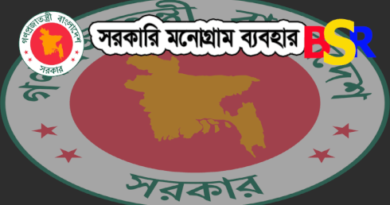The Economy of Online Gaming in Bangladesh
While most people focus on the obvious features of online gaming, such as revenue and player counts, what’s worth paying attention to is how an entirely new economy is developing that is changing the way millions of Bangladeshis work, interact, and spend their money. This is about how the digital entertainment revolution is creating entirely new ways to make money in a country of 170 million people, rather than just another story about gaming expanding in a developing country.
The Digital Infrastructure Challenge
Why Bangladesh’s gaming scene is different than you might expect: Bangladesh faces fundamental infrastructure challenges from the start, unlike other countries where gaming has evolved with the steady growth of the internet. Imagine trying to build a highway when cars are already racing on it; that’s what the gaming infrastructure is like here. While connectivity varies greatly from one region to another, the number of mobile internet users has surpassed 120 million.
The gaming industry has had to adapt to these specific circumstances. Some platforms, like Baji Casino and its associated gaming websites, have come up with creative ways to overcome connectivity issues. However, this raises an interesting question that hasn’t been addressed before: what happens when a country’s gaming sector grows faster than its infrastructure can accommodate?
The Shadow Market
One of the most underrated aspects of the Bangladeshi gaming scene is the rise of what locals call “game brokers.” These are people who have founded companies that deal with gaming-related issues, rather than being developers or gamers. Think of the tech-savvy youngsters who make money helping older gamers set up gaming accounts and negotiate payment methods, or the shopkeepers who have turned their establishments into mobile game refill stations. There’s probably no other place that has such a robust support economy.
Using Games to Break Down Cultural Barriers
Games are doing something unusual in Bangladesh: they’re gently questioning ingrained societal norms about entertainment and careers. Parents who once thought gaming was a waste of time are now seeing their kids earn more through streaming services or game testing than they would in a typical entry-level job. This raises an interesting question: in a society that often favors established professions, can gaming become a socially acceptable career path?
A New Digital Gender Divide
In Bangladesh, the interaction between gender and gaming raises unanswered questions that no one else knows about. Why do female gamers often favor alternative monetization strategies than male gamers? Why do women find success in game production more likely than in competitive gaming? The answers reveal interesting new perspectives on how the digital environment can either support or undermine traditional gender norms.
Local Small Businesses Relying on Gaming
One of the most surprising effects of online gaming has been the impact it has had on small, local businesses. Gaming support centers are emerging from corner stores. Local phone repair companies are focusing on optimizing gaming devices. New businesses printing gaming merchandise for local events are even being discovered by local printers. Bangladesh is the only country where this phenomenon of regular businesses turning into gaming-related services exists.
The Education System’s Gaming Problem
Bangladesh’s education system is in unprecedented circumstances: games are teaching more in-demand skills than traditional courses. Some children are finding that gaming networks are helping them learn English faster than they could in a classroom. Others are learning simple coding by adapting mobile games. This raises an important question: should the education system either resist gaming or find ways to incorporate it?
Cross-Border Gaming Communities
Something amazing is happening along the borders of Bangladesh. Gamers are creating unsanctioned gaming zones where players from Bangladesh, India, and Myanmar compete and collaborate, transcending national borders. Where traditional diplomacy fails, these online meeting places are facilitating cultural interaction.
Unofficial Gaming Business
The informal marketplace of Bangladesh’s gaming culture is perhaps its most underrated feature. People exchange real-world services for in-game items. Some small shops accept in-game money as part payment. Players hire local coaches to improve their game. Together with the official gaming sector, it’s a comprehensive underground economy.
Mobile Gaming Infrastructure
Bangladesh has a special mobile gaming conundrum. Although most of its players play on phones, the country’s mobile infrastructure was not designed with gaming in mind. This raises interesting questions: How do you design games for networks with the potential for instant disconnection? How to manage in-game purchases when many users don’t have credit cards? Local developers and entrepreneurs have innovative ideas that other developing countries should consider.
Building Game Content Ecosystems
There’s a remarkable trend in content creation in Bangladesh. Game content creators are microentrepreneurs, not just video makers. They employ local youth as community managers, editors, and thumbnail designers. Some even set up small training centers to train others to become content creators. This creates a whole new job market that was unthinkable in the past.
The Social Safety Network of Games
Incredibly, gaming groups in Bangladesh serve as informal social safety nets. Gaming organizations sometimes plan to help people going through personal difficulties through in-game events or real-life get-togethers. Some gaming groups even set aside informal emergency money for members in need. In a country with few formal welfare institutions, this social purpose of gaming communities is especially important.
The Gaming Economic Future of Bangladesh
Looking ahead, Bangladesh’s gaming industry raises some interesting questions. Can gaming become a significant export sector for the country? Will local game developments impact global gaming patterns? Can Bangladesh’s unique gaming environment serve as a model for other emerging nations?
Conclusion
Bangladesh’s gaming industry is a testing ground for how digital entertainment can transform society, not just a fledgling sector. The unique challenges and solutions it faces may offer important lessons for other developing countries. Bangladesh’s gaming industry may provide a fresh perspective on growth in the digital age as it negotiates these digital changes.










